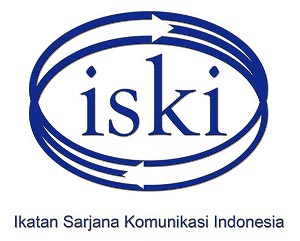GLOBALISASI BUDAYA POP DALAM MEDIA DIGITAL : KAJIAN PADA PLATFORM TIKTOK
Abstract
Penelitian ini bertujuan untuk mengkaji globalisasi budaya pop dalam media digital, dengan fokus pada TikTok sebagai platform penyebaran budaya global. TikTok, yang memfasilitasi pertukaran budaya lintas batas, menggunakan algoritma yang meningkatkan keterlibatan pengguna namun juga membatasi keberagaman perspektif budaya. Dengan menganalisis karakteristik media digital seperti diseminasi sekatan, konten buatan pengguna (UGC), dan personalisasi algoritmik, penelitian ini mengungkap peran TikTok dalam memperkuat budaya pop global dan tantangan yang timbul terkait pemahaman budaya yang lebih dalam. Penelitian ini menggunakan pendekatan kualitatif dengan metode studi literatur, yang mencakup penelaahan terhadap jurnal ilmiah, buku akademik, artikel media, dan publikasi daring yang relevan. Data dikumpulkan secara sistematis menggunakan kata kunci terkait, dan dianalisis dengan metode analisis isi untuk mendapatkan wawasan baru tentang dinamika budaya pop di TikTok. Untuk validitas, penelitian ini menerapkan triangulasi sumber, membandingkan informasi dari berbagai referensi dan sudut pandang yang kredibel dan relevan.
Keywords
Full Text:
PDFReferences
Boffone, T. (2023). TikTok. In The Blackwell Encyclopedia of Sociology (pp. 1–1). Wiley. https://doi.org/10.1002/9781405165518.wbeos1950
Chen, L. (2023). Exploring the Impact of Short Videos on Society and Culture: An Analysis of Social Dynamics and Cultural Expression. Pacific International Journal, 6(3), 115–118. https://doi.org/10.55014/pij.v6i3.420
Cicchelli, V., & Octobre, S. (2021). An Alternative Globalization of Pop Culture. In The Sociology of Hallyu Pop Culture (pp. 75–110). Springer International Publishing. https://doi.org/10.1007/978-3-030-84296-3_3
Collie, N., & Wilson-Barnao, C. (2020). Playing with TikTok: algorithmic culture and the future of creative work. In The Future of Creative Work. Edward Elgar Publishing. https://doi.org/10.4337/9781839101106.00020
Dekic, E. (2022). Digital Culture and Value Clash on TikTok: ‘Dancing Girl’ vs. Radical Feminist. Humanitarian Vector, 17(4), 117–127. https://doi.org/10.21209/1996-7853-2022-17-4-117-127
Fedorak, S. A. (2018). What is popular culture? In The Routledge Handbook of Popular Culture and Tourism (pp. 9–18). Routledge. https://doi.org/10.4324/9781315559018-2
Gerbaudo, P. (2024). TikTok and the algorithmic transformation of social media publics: From social networks to social interest clusters. New Media & Society. https://doi.org/10.1177/14614448241304106
Harness, J., & Getzen, H. (2022). TikTok’s Sick-Role Subculture and What to Do About It. Journal of the American Academy of Child & Adolescent Psychiatry, 61(3), 351–353. https://doi.org/10.1016/j.jaac.2021.09.312
Jia, L., & Liang, F. (2021). The globalization of TikTok: Strategies, governance and geopolitics. Journal of Digital Media & Policy, 12(2), 273–292. https://doi.org/10.1386/jdmp_00062_1
Kaur-Gill, S. (2023). The cultural customization of TikTok: subaltern migrant workers and their digital cultures. Media International Australia, 186(1), 29–47. https://doi.org/10.1177/1329878X221110279
Kerby, N., Romano, S., Schueler, M., & Beraldo, D. (2023). THE WORLD ACCORDING TO TIKTOK: AN OBSERVATORY ON CROSS-NATIONAL CONTENT PRIORITIZATION AND PLATFORM-MEDIATED PROXIMITIES. AoIR Selected Papers of Internet Research. https://doi.org/10.5210/spir.v2023i0.13435
KONUK KANDEMİR, N., & YURT, E. K. (2024). EFFECTS OF SOCIAL MEDIA USE ON UNIVERSAL CULTURE: TIKTOK LANGUAGE. In GLOBAL TRANSFORMATIONS AND TÜRKİYE (pp. 501–512). Turkish Academy of Sciences. https://doi.org/10.53478/TUBA.978-625-6110-04-5.ch29
Kurniawan, B. (2018). TikTok Popularism and Nationalism: Rethinking National Identities and Boundaries on Millennial Popular Cultures in Indonesian Context. Proceedings of AICS - Social Sciences, 8(0), 83–90.
Kusumawardhani, E., & Sari, D. S. (2021). Gelombang Pop Culture Tik-Tok: Studi kasus Amerika Serikat, Jepang, India dan Indonesia. Padjadjaran Journal of International Relations, 3(1), 19. https://doi.org/10.24198/padjir.v3i1.27758
Langer, B. (2018). Popular Culture. In Core Concepts in Sociology (pp. 212–214). Wiley. https://doi.org/10.1002/9781394260331.ch60
Liang, J., Miao, H., & Sai, R. (2024). TikTok Challenges and Cross-Cultural Success: BLACKPINK’s Global Reach Through Short-Form Video in the K-Pop Industry. Interdisciplinary Humanities and Communication Studies, 1(10). https://doi.org/10.61173/3nyan341
Merung, A. Y., Larisu, Z., Bahriyah, E. N., & Ulhaq, M. Z. (2024). Transformation Cultural Identity In The Global Era: A Study Of Globalization And Locality. Socious Journal, 1(5), 1–8. https://doi.org/10.62872/jnxmz319
Mihr, A. (2022). The Glocal Between the Local and the Global (pp. 15–49). https://doi.org/10.1007/978-3-031-02108-4_2
O’Toole, K. (2023). Collaborative Creativity in TikTok Music Duets. Proceedings of the 2023 CHI Conference on Human Factors in Computing Systems, 1–16. https://doi.org/10.1145/3544548.3581380
Oktarina, O., Sarmiati, S., & Asrinaldi, A. (2022). Globalisasi dan identitas budaya Indonesia melalui aplikasi tiktok. JRTI (Jurnal Riset Tindakan Indonesia), 7(2), 277. https://doi.org/10.29210/30031775000
Peng, Y. (2023). Are we becoming part of a global culture? Journal of Education, Humanities and Social Sciences, 15, 195–201. https://doi.org/10.54097/ehss.v15i.9254
Pooran Chandra Pande, & Dr. K.B. Asthana. (2024). Social Media and Cultural Trends. International Journal for Multidimensional Research Perspectives, 2(6). https://doi.org/10.61877/ijmrp.v2i6.153
Quintana Bernal, M. R., Sancan Rivera, M. J., Landázuri Castillo, M. V., Abril Cócheres, D. G., & Mora Pita, M. E. (2024). Globalización y cultura: impacto de la integración económica y tecnológica en identidades sociales y tradiciones locales globales y locales. LATAM Revista Latinoamericana de Ciencias Sociales y Humanidades, 5(4). https://doi.org/10.56712/latam.v5i4.2364
Radovanović, B. (2022). TikTok and Sound: Changing the ways of Creating, Promoting, Distributing and Listening to Music. INSAM Journal of Contemporary Music, Art and Technology, 9, 51–73. https://doi.org/10.51191/issn.2637-1898.2022.5.9.51
Steger, M. B. (2023). The cultural dimension of globalization. In Globalization: A Very Short Introduction (pp. 83-C5T2). Oxford University PressOxford. https://doi.org/10.1093/actrade/9780192886194.003.0005
Stenglin, M. (2012). ‘Glocalisation’ Exploring the Dialectic between the Local and the Global. In Multimodal Texts from Around the World (pp. 123–145). Palgrave Macmillan UK. https://doi.org/10.1057/9780230355347_6
Valdovinos Kaye, D. B., Rodriguez, A., & Wikstrom, P. (2020). YOU MADE THIS? I MADE THIS: CULTURES OF AUTOMATIC (MIS)ATTRIBUTION ON TIKTOK. AoIR Selected Papers of Internet Research. https://doi.org/10.5210/spir.v2020i0.11354
Waechter, N. (2021). “Glocalized” Digital Youth Cultures. In Youth Cultures in a Globalized World (pp. 227–243). Springer International Publishing. https://doi.org/10.1007/978-3-030-65177-0_14
Wagner, K. B. (2023). TikTok and its mediatic split: the promotion of ecumenical user-generated content alongside Sinocentric media globalization. Media, Culture & Society, 45(2), 323–337. https://doi.org/10.1177/01634437221136006
Xiaojuan, J. (2023). Technology and Culture in the Digital Era. Social Sciences in China, 44(1), 4–24. https://doi.org/10.1080/02529203.2023.2192080
Yin, J. (2025). From Connection to Isolation: The Role of TikTok Algorithmic Personalization in Computational Media and Cross-cultural Communication. Communications in Humanities Research, 61(1), 44–52. https://doi.org/10.54254/2753-7064/2025.20620
DOI: http://dx.doi.org/10.30813/s:jk.v19i1.8327
Refbacks
- There are currently no refbacks.
Copyright (c) 2025 Tasya Hanafiah

This work is licensed under a Creative Commons Attribution-ShareAlike 4.0 International License.
Publisher
Editorial Board SEMIOTIKA: Jurnal Komunikasi
Department of Communication
Faculty of Social Science and Humanities
"UNIVERSITAS BUNDA MULIA"
Lodan Raya St No.2, North Jakarta 14430
Phone: +62 21 692 9090 ext. 348
Email: SEMIOTIKA@ubm.ac.id













